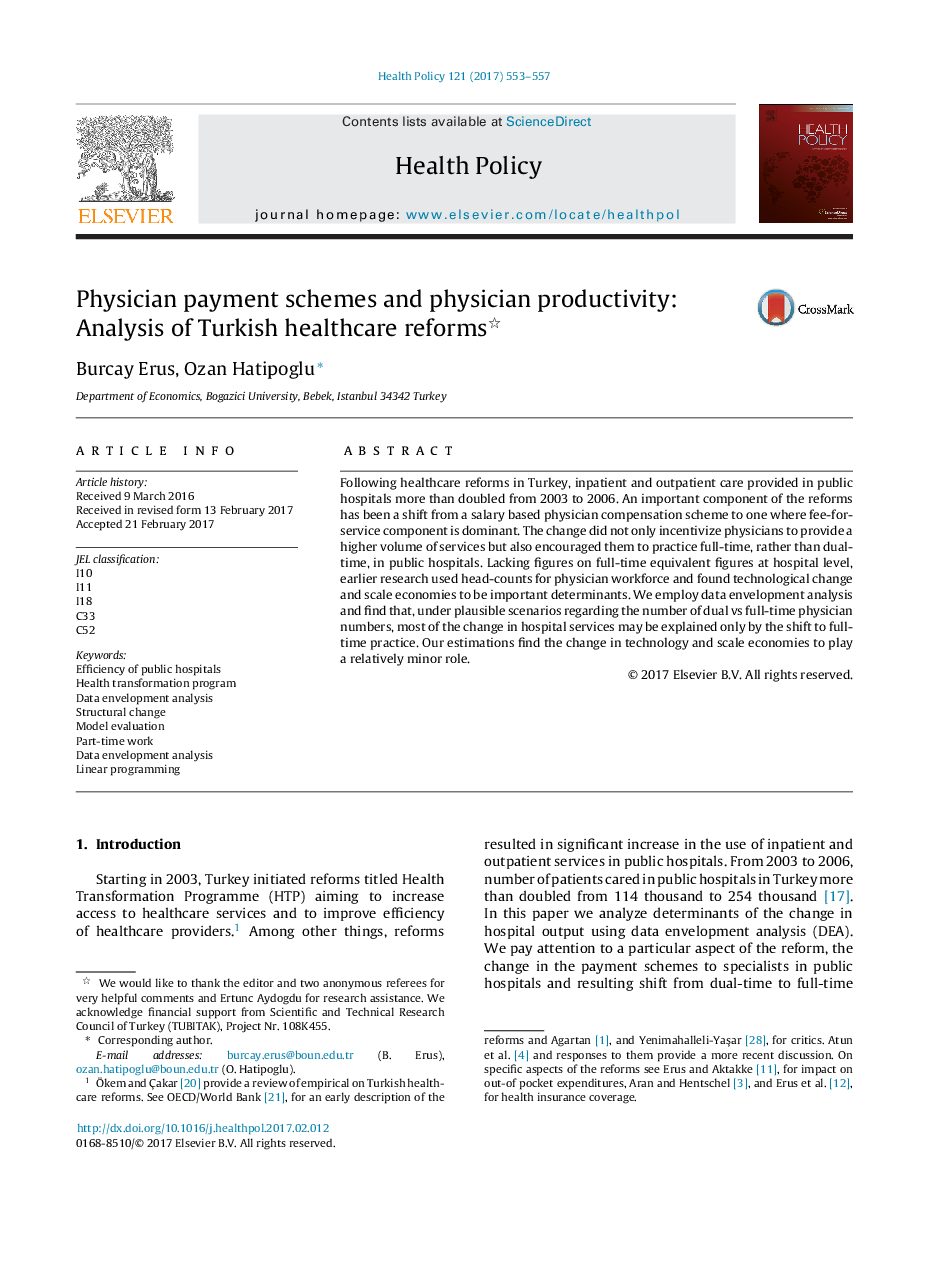| Article ID | Journal | Published Year | Pages | File Type |
|---|---|---|---|---|
| 5723469 | Health Policy | 2017 | 5 Pages |
â¢In Turkey, there has been a major health reform between 2003-2006.â¢Inpatient and outpatient care provided in public hospitals more than doubled.â¢This paper uncovers the causes of the above increase in public hospital services.â¢It employs data envelopment analysis.â¢The semi-forced shift of physicians to full-time employment is the main cause.â¢The role of technological change and scale economies are found to be limited.
Following healthcare reforms in Turkey, inpatient and outpatient care provided in public hospitals more than doubled from 2003 to 2006. An important component of the reforms has been a shift from a salary based physician compensation scheme to one where fee-for-service component is dominant. The change did not only incentivize physicians to provide a higher volume of services but also encouraged them to practice full-time, rather than dual-time, in public hospitals. Lacking figures on full-time equivalent figures at hospital level, earlier research used head-counts for physician workforce and found technological change and scale economies to be important determinants. We employ data envelopment analysis and find that, under plausible scenarios regarding the number of dual vs full-time physician numbers, most of the change in hospital services may be explained only by the shift to full-time practice. Our estimations find the change in technology and scale economies to play a relatively minor role.
